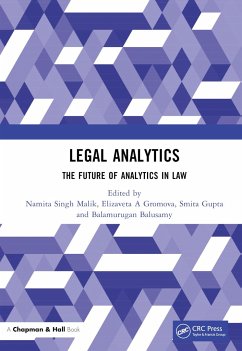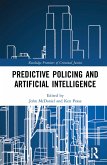Legal Analytics: The Future of Analytics in Law navigates the crisscrossing of intelligent technology and the legal field in building up a new landscape of transformation. Legal automation navigation is multidimensional, wherein it intends to construct streamline communication, approval, and management of legal tasks. The evolving environment of technology has emphasized the need for better automation in the legal field from time to time, although legal scholars took long to embrace information revolution of the legal field.
- Describes the historical development of law and automation.
- Analyzes the challenges and opportunities in law and automation.
- Studies the current research and development in the convergence of law, artificial intelligence, and legal analytics.
- Explores the recent emerging trends and technologies that are used by various legal systems globally for crime prediction and prevention.
- Examines the applicability of legal analytics in forensic investigation.
- Investigates the impact of legal analytics tools and techniques in judicial decision making.
- Analyzes deep learning techniques and their scope in accelerating legal analytics in developed and developing countries.
- Provides an in-depth analysis of implementation, challenges, and issues in society related to legal analytics.
This book is primarily aimed at graduates and postgraduates in law and technology, computer science, and information technology. Legal practitioners and academicians will also find this book helpful.
- Describes the historical development of law and automation.
- Analyzes the challenges and opportunities in law and automation.
- Studies the current research and development in the convergence of law, artificial intelligence, and legal analytics.
- Explores the recent emerging trends and technologies that are used by various legal systems globally for crime prediction and prevention.
- Examines the applicability of legal analytics in forensic investigation.
- Investigates the impact of legal analytics tools and techniques in judicial decision making.
- Analyzes deep learning techniques and their scope in accelerating legal analytics in developed and developing countries.
- Provides an in-depth analysis of implementation, challenges, and issues in society related to legal analytics.
This book is primarily aimed at graduates and postgraduates in law and technology, computer science, and information technology. Legal practitioners and academicians will also find this book helpful.








